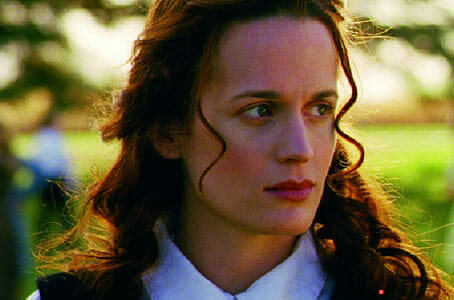The Big Picture

Sweet Land
Director: Ali Salim
Writer: Will Weaver, Ali Selim
Cinematographer: David Tumblety
Starring: Elizabeth Reaser, Tim Guinee, Alan Cumming
Studio/Running Time: 20th Century Fox, 100 mins.
Anyone nostalgic for the stately Americana of PBS’s vintage American Playhouse series will appreciate this modest yet overachieving memory play, ushered into existence with a hand from actor/producer Alan Cumming, someone usually known for friskier excursions. Conceived as a stylish evocation of the Norwegian settlement of northern Minnesota in the 1920s, the film belongs to a pop-cultural lineage that stretches from the bucolic banalities of Garrison Keillor to the heartland harmonies of The Jayhawks. It’s an affirmation of land, faith, work and love, all of which triumph against provincial prejudice and the small-mindedness of village groupthink.
-

-

-

-

-

-

-

-

-

-

-

-

-

-

-

-

-

-

-

-

-

-

-

-

-

-

-

-

-

-

-

-

-

-

-

-

-

-

-

-








































